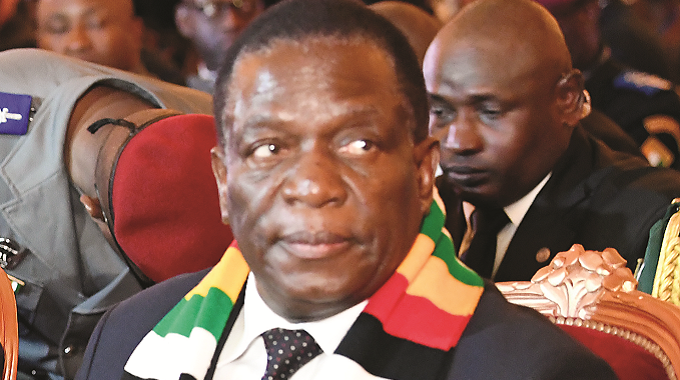The Application of Servant-Leadership …Putting servant-leadership into perspective and context

Pastor Tomson Dube
IN my last article, I pointed out that one outstanding characteristic of servant leaders is that they seek to transform their followers to “grow healthier, wiser, freer, more autonomous, and more likely themselves to become servants.” We also spoke about the pronouncements of His Excellency, the President of the Second Republic of Zimbabwe that he is a servant leader.
I pointed out that literature shows 10 characteristics of servant-leadership (i.e. listening, empathy, healing, awareness, persuasion, conceptualization, foresight, stewardship, commitment to growth of people, and building community) and this is based solely on readings by Greenleaf. Some argue that these characteristics are not grounded in solid research studies.
According to the Gonzaga University, and the Robert K. Greenleaf Centre, Robert Greenleaf had desired to see servant-leadership applied to life situations and truly his life stood for this model.
The Robert Greenleaf Centre believes that it was each person’s task in life to leave his or her place in the world a better one after they had departed. This is the macro picture and the implications of servant leadership. Scholars that most literature emphasise Robert Greenleaf as the originator of the servant-leadership model, whereas in truth, the origins of servant-leadership date back thousands of years in both Eastern and Western philosophy.
The earliest as recorded in Jesus Christ’s teachings, can be traced and found in the Bible (Mark 10: 43) “He who would be great among you must be the servant of all.” In addition, the writings of Plato, Aristotle and many other great thinkers through the ages speak about servant-leadership. Initially, servant-leadership was a model of leadership that was applicable to the corporate world, and in the educational institutions as well as the present day private sector.
But now, it has transcended to all sectors of life.
A review of scholarly studies on leadership shows that there is a wide variety of theoretical approaches to explain the complexities of leadership process. Despite the multitude of ways in which leadership has been conceptualised, components that are central to the phenomenon of leadership include that: a). leadership is a process, b). leadership involves influence, c). leadership occurs in group context, and d). leadership involves goal attainment.
However, of all biblical accounts of servant leadership, the example given above in Mark 10, are perhaps the most powerful and instructive. It is perhaps helpful to understand the context in which this teaching took place. On one occasion during his ministry, Jesus was teaching his disciples about the betrayal and death he would soon experience.
Jesus’ disciples, however, did not grasp the meaning of that particular lesson as they did in most cases. Instead they argued bitterly among themselves about their individual superior positions over the other disciples. Each of them claimed to be the greatest leader in the absence of Jesus. Their arguments must have been intense since all the four gospels had to outline the story. We see James and John very fascinated by the temptation of power asked Jesus to install them in the uppermost leadership positions in God’s kingdom, next to Jesus himself.
This is what is very common in today’s world of politics or in some corporates. Human beings will always remain to their true nature. When they see an opportunity, they want to exploit it to the maximum and/or fullest. Yet this is not the concept of servant-leadership. You serve first then leadership follows.
President Mnangagwa served the former President, Mr Robert Mugabe for 50 years. He was accused of wanting to install himself by some hired youths and sections of the women’s league including the now repentant former first lady Mrs Grace Mugabe. Like the story of Jesus’ disciples, not many of the leaders within the party were happy with ED’s ascendancy as we all know the events that led to the November 17, 2017 experience.
In the same manner, the other disciples were furious with James and John’s request. The outcome of this constant bickering and jockeying for positions was the deterioration of the disciples’ harmony. This is a familiar sight of factionalism that was in Zanu-PF. From that point onward, disciples would have been divided with suspicions of each other’s motives. Thank God there was no ice cream…they would have poisoned each other. It was following these incidents that Jesus taught his disciples the principles of servant-leadership.
Jesus called them together and said, “You know what those who are regarded as rulers of Gentiles lord it over them, and their high officials exercise authority over them. Not so with you. Instead, whoever wants to become great among you must be your servant” (NIV Bible, Mark 10:43). This is where the difference in demonstrating leadership lies with our situation in Zimbabwe.
While at every gathering given the slightest opportunity the G40 cabal would lash out every venom they had left from the last Zanu-PF gathering and make a public spectacle to demean and castigate President Mnangagwa. Here, the then former President should have reigned in his disciples and taught them leadership lessons. He did not. Instead he rode on that tide because it suited him well and kept him in power. For me this is where he failed the nation. He was unable to reign in his foot soldiers.
Jesus did not only teach servant-leadership, he applied it in many concrete ways. He demonstrated what servant-leadership is by engaging in the humble act of washing the feet of his disciples, as recorded in the gospel of John (Chapter 13). What does foot washing mean in the context of servant leadership? The early Palestine village life would help us understand this phenomenon. Foot-washing was not primarily a ceremonial custom.
It was practically important because people walked in sandals through dusty, muddy and manure-filled streets. Given the use of animals for transportation at the time, it was easy for feet to get dirty and smelly. Consequently, washing someone’s feet was regarded as one of the most demeaning tasks anyone could perform. Yet it was the custom of the time that the host provided a servant to perform the task before the guests came to the table for a meal.
In the absence of the host’s servant, it was common for the lowest-ranking guest to wash the feet of others. Now when someone declares that s/he is a servant-leader, can they do exactly as what the term really means or its lip-service? I said it last time and I will repeat it. People understand what servant-leadership is and know what it is but are not what it is. President Mnangagwa has not hid it from the nation or the world. He said that he is a listening leader.
True to that, a listening leader is a servant-leader. Listening is a critical communication tool in servant-leadership, which is necessary for accurate communication and for actively demonstrating respect for others.
Listening is the aspect missing in most leaders — leading to sour relations at any level including government relations. “Only a true natural servant automatically responds to any problem by listening first.” Literature has helped in pointing out that it is important to manage relationships at all levels that is, business (private sector), government and civil society.
Listening is the most fundamental qualification for a servant-leader and an attitude that a leader wants to know subordinate’s needs actively and positively with the receptive attitude of respecting and listening to them. Every servant-leader needs to listen because this is a critical communication tool, necessary for accurate communication and for actively demonstrating respect for others.
Only a true natural servant automatically responds to any problem by listening first. Listening also encompasses hearing one’s own inner voice. Listening, coupled with periods of reflection, is essential to the growth and well-being of the servant-leader. Listening creates opportunities to hear the words of those speaking and facilitates good hearing!
Other attributes of a servant leader are empathy and compassion. These are key elements of African leadership philosophy and practices. An effective leader demonstrates the ability and conscience to govern and forgive, since one is always a victim unless one can forgive and thereby bring about community healing. I listened very carefully to President Mnangagwa’s interview with Christiane Amanpour on CNN during his maiden appearance at the United Nations General Assembly.
President Mnangagwa demonstrated his forgiveness of the former first family. Amanpour tried to bring a wedge, but the President exhibited signs of forgiveness. This for me demonstrated that the empathy we have about others is the essence of our being. This is the heart and soul of African philosophy of ubuntu. This is the application of servant leadership and its praxis.
Pastor Tomson Dube is a lead pastor at a local city church in Bulawayo and the University Chaplain at the National University of Science and Technology (NUST). He writes this article in his own personal capacity as a leader and a voice to the nations. You can get hold of Pastor Dube via e-mail on [email protected].










Comments